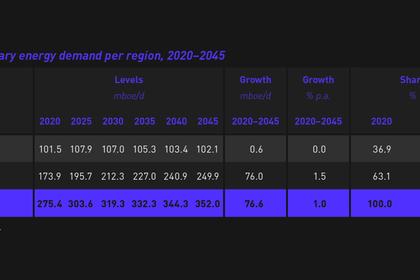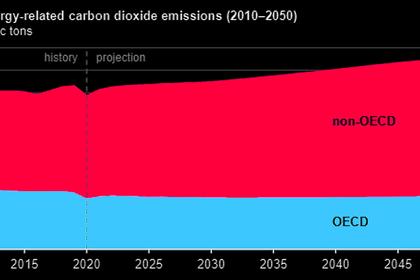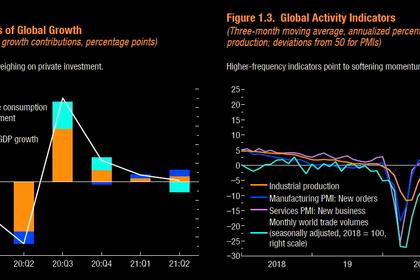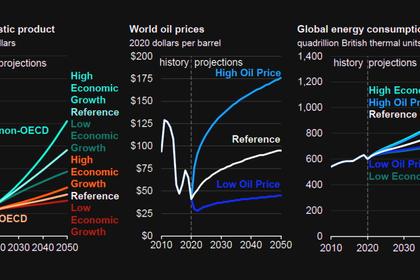
GLOBAL CLIMATE: +2 C INEVITABILITY

By ANDY WOOD Subsurface Manager CeraPhi Energy
ENERGYCENTRAL - Nov 18, 2021 - A global meeting to discuss the environmental future of our planet can only be a good thing. Discussion leads to positive collaboration.
The forum brings awareness of processes and technologies which will help to make our world a cleaner place.
Reducing waste, creating efficiencies and decreasing our dependence on fossil fuels.
Ultimately governments and organisations will not be judged on what they have committed to, but what they achieve. My experience is that these two variables can be very close or worlds apart.
Some of the major commitments at COP26 were:
Coal: A major pledge saw 190 countries, banks, and organisations agreeing to phase out coal power. I applaud Vietnam, Poland and Indonesia for the ambitious pledge. The obvious abstainers were the US and Australia. India and China are still rapidly expanding and can’t make such commitments for some time.
Oil & Gas: Hydrocarbon majors sent more than 500 lobbyists to COP26. Which explains why the most remarkable O&G commitment was by twenty developed world countries which have agreed to stop lending money to overseas fossil fuel projects, including oil and natural gas. This is forced environmentalism at the expense of developing world nations which will force vast numbers of already struggling people into energy poverty.
Killing Trees: More than 100 world leaders have promised to end and reverse deforestation by 2030. I'm not sure why it will take so long.
Methane: An alliance of more than 90 nations, representing two-thirds of the global economy – pledged to reduce methane emissions by at least 30% from current levels by 2030. Much of this is animal agriculture derived. However, I didn’t hear or read any reports focussing on reducing our animal product consumption. The message is too unpopular.
Other Emissions: While world leaders have committed collectively to limiting global warming to as close to 1.5°C as possible and “well below” 2°C, the contribution that each country will make has yet to be finalised – and the commitments that have been made so far aren’t enough. History suggests political performance never exceeds the pledge. 2°C is therefore inevitable.
Banks: A new initiative that sees the world’s largest banks and asset managers – together worth $130trillion – pledge to meet net-zero goals by 2050. Signatories to the Glasgow Financial Alliance for Net Zero must also commit to set 2030 climate goals as part of the package.
China and the U.S: The superpowers vowed to work together to slow global warming. Whatever that means.
Absentees: Small & Medium Enterprise mostly didn’t attend COP26. They were busy in their offices and workshops preparing to save the planet in the way only they can. This silent army of workers, focused more on the mission itself that on talking about it will contribute more than most orators at the COP26 talking shop.
We all know governments change, they back-pedal and make excuses about extenuating circumstances which preclude them from honouring their pledges. Their commitments become hidden by smoke and mirrors wrapped in a pretty bow of obfuscation.
But it’s it isn’t all about governments. Some companies have a far greater environmental impact than entire countries.
Something which has changed in recent years is that organisations are being held to account. There are repeated examples of governments and environmentally conscious groups strongly influencing corporations. This movement will grow and the will of the people will shape the world.
Unfortunately, governments are rarely held to account for backtracking on their policies and pledges. The ultimate test for governmental performance is a general election. Historically environmental performance ranks very low when electors go to the poll. However, that may change also.
For now, it’s left to individuals, their personal environmental behaviour and those determined organisations insisting corporations behave responsibly to protect the planet.
If nothing else, the Conference Of Parties acts as a gauge to determine how we have progressed since the last one.
Many of the commitments, pledges and blatant mendacity from COP26 have focused on a 2030 timeline. There is a legion of concerned and outraged citizens who will remember the voices of power and will do their very best to ensure the 2030 goals are achieved. I for one wish them luck.
-----
This thought leadership article was originally shared with Energy Central's Clean Power Community Group. The communities are a place where professionals in the power industry can share, learn and connect in a collaborative environment. Join the Clean Power Community today and learn from others who work in the industry.
-----
Earlier:



















